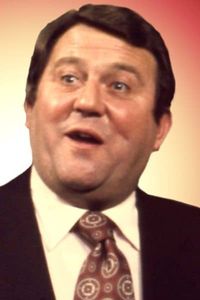Terry Scott, a brilliant comic actor, was a familiar face on British television in the 1960s and 1970s. At the height of his popularity, his classic comedy series, Terry and June, co-starring with June Whitfield, was watched by 15 million viewers weekly.
Born Owen John Scott in Watford, he began his theatrical career in his teens at the Watford Amateur Dramatic Society, playing small comedic roles. During the Second World War, he served in the Royal Navy and, in 1945, used his demobilisation gratuity to enter show-business as a manager of seaside shows around Britain.
In 1949, he was contracted by the BBC to appear on a radio show with comic Bob Monkhouse, which was not successful. Later, he teamed up with another comic, Bill Maynard, leading to the popular TV series Great Scott, It's Maynard.
On stage in the late 1950s, he worked in farces with comedians such as Brian Rix before going on to star in another popular TV comedy, Hugh and I, with Hugh Lloyd, which regularly topped the ratings during the 1960s. In 1969, he joined up with comic actress June Whitfield in the series Happy Ever After, which later evolved into Terry and June and ran for a record-breaking 14 years. In 1978, the Scott and Whitfield duo were named by the Variety Club of Great Britain as Joint Personalities of the Year.
On the London stage, he proved hugely popular in shows such as A Bed Full of Foreigners, The Mating Game, and Run For Your Wife, which he also toured in the Middle East. He was also one of Britain's most famous pantomime 'dames'.
Scott was dogged by ill-health for many years and, in 1979, his life was saved by a four-hour brain operation after a haemorrhage. By 1985, he was suffering from creeping paralysis and often had to wear a neck brace on stage and TV. When his TV series Terry and June was axed in 1988, he suffered a nervous breakdown partly brought on by his public confession that he had indulged in a series of affairs during his marriage to former dancer Margaret Peden, whom he wed in 1957, and that he was suffering from cancer.

















































